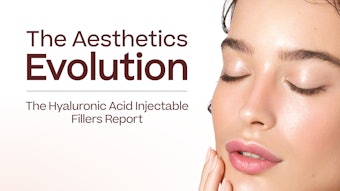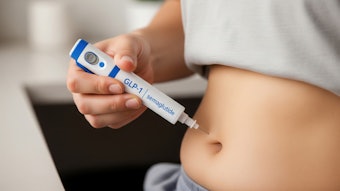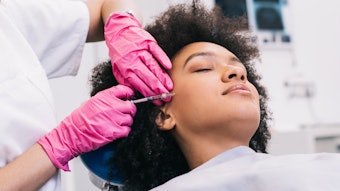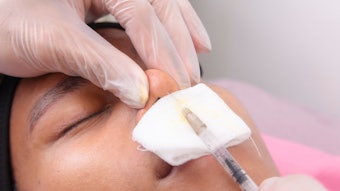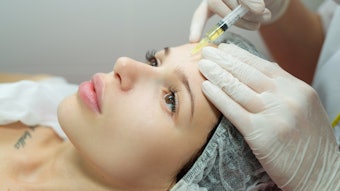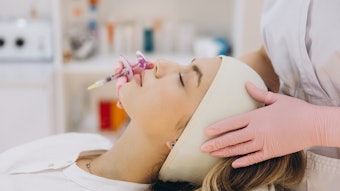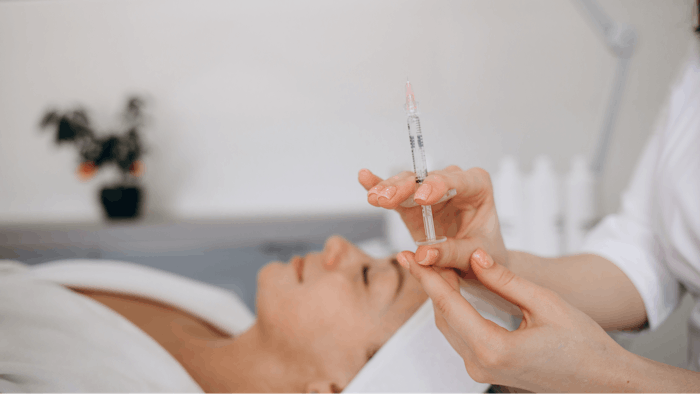
The US Centers for Disease Control and Prevention (CDC) has shared results from a five-year-long investigation into a now-closed unlicensed spa in New Mexico where at least three clients contracted HIV after receiving platelet-rich plasma (PRP) microneedling facials. It is the first investigation by the CDC to associate HIV transmission with nonsterile cosmetic injection services.
The clients received vampire facials, a procedure that involves drawing a client’s blood, separating the blood into its components of plasma and cells and using single-use disposable or multiuse sterile equipment to inject the PRP into the face.
The investigation began in 2018 and results were compiled and published by Anna M. Stadelman-Behar, Ph.D., et. al. in an April 2024 edition of the CDC's Morbidity and Mortality Weekly Report (MMWR). Free testing remains available for clients of the former spa and the investigation is ongoing.
Related: Adverse Reactions from Counterfeit Botox Spread Across U.S.
Investigation of the 2018 Incident
An investigation of the spa’s services began in the summer of 2018. Both the New Mexico Department of Health (NMDOH) and CDC identified four former spa clients, and one sexual partner of a spa client, that received HIV infection diagnoses during 2018–2023, despite low reported behavioral risks associated with HIV acquisition. Nucleotide sequence analysis by investigators revealed highly similar HIV strains among all cases.
The CDC investigation identified an HIV cluster associated with the receipt of cosmetic injection services at an unlicensed facility that did not follow recommended infection control procedures or maintain client records. The spa owner had operated without appropriate licenses at multiple locations and did not have an appointment scheduling system that stored client contact information.
An on-site inspection of the spa revealed multiple unsafe infection control practices. A centrifuge, a heating dry bath and a rack of unlabeled tubes containing blood were located on a kitchen counter. Unlabeled tubes of blood and medical injectables were stored in the kitchen refrigerator along with food. Unwrapped syringes were found in drawers, on counters and discarded in regular trash cans. An autoclave was not found on the premises. The procedure equipment was surface cleaned using ammonium chloride disinfecting spray and benzalkonium chloride disinfecting wipes after each client visit and disposable electric desiccator tips were cleaned by alcohol immersion and reused.
5 Patients Test Positive
Five patients who tested positive for HIV were identified, including four women and one man who was a sexual partner of one of the four women patients and never received any services from the spa.
The two patients who were engaged in a sexual relationship had stage 3 or chronic HIV infections, indicating that their infections were likely attributed to exposures before receipt of cosmetic injection services.
The other three patients in this cluster had no known social contact with one another and no specific mechanism for transmission among these patients was confirmed. The CDC concluded that contamination from an undetermined source at the spa during the spring and summer of 2018 resulted in HIV-1 transmission to these three patients.
Testing has been performed on 198 former clients and their sexual partners from 2018 to 2023. No additional HIV infections were identified, nor were any hepatitis B or hepatitis C infections detected.
Per the CDC, "This investigation underscores the importance of determining possible novel sources of HIV transmission among persons with no known HIV risk factors. Requiring adequate infection control practices at spa facilities offering cosmetic injection services can help prevent the transmission of HIV and other bloodborne pathogens. Maintenance of client records could facilitate investigations of suspected transmission at such facilities."

